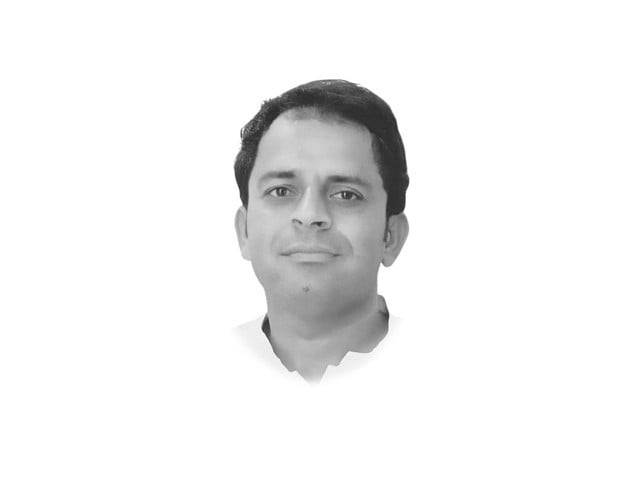Government's woes
The people are so content with the government and so smug about it that they avoid bothering it

Though the title — set against the woes overwhelming public life in the country — might sound oxymoronic, it is nevertheless not without merit in imagined paradoxical reality. For, in a parallel or hypothetical Pakistan, the ruled would find their country's affairs managed in strict compliance with democratic and constitutional ideals, and moreover, enjoy sustainable prosperity, albeit one marked by complicity, monotony and a lack of novelty.
The people are so content with the government and so smug about it that they avoid bothering it. This public ennui stems from successive governments' overly protective stance, combined with prolonged peace and prosperity, which has paradoxically fostered stagnation and a lack of vital stimuli. In their euphoric melancholy and as a gesture of courtesy, the public has begun to show reluctance in sharing the hardships they face. Instead, they compose odes and hymns, expressing gratitude to their rulers — whether selected or the selectors.
However, this alleviation of public woes only added to the woes of the government and its functionaries, who are committed to serving altruistically and setting an example for the world to follow. To address people's reluctance and enhance altruistic service to the public, the incumbent regime has planned to censor public silence. In this regard, the government has purchased technologies worth billions — including firewalls — to listen to, watch and detect people's hidden and perceived agonies and to do its best to redress them. The people, however, rarely appear willing to bother their "mother state" and are therefore unwilling to share their suppressed pain via all modes that could potentially get trapped and cognisant of by the stakeholders.
Frustrated and frightened by the public's assumed ease, unparalleled complacency and conformist attitude — and potential stagnation — the incumbent government has begun to lift press and media censorship. Now, they're requested and incentivised to speak the truth, scrutinise the regime's governance and provide reasons for people to dissent. Meanwhile, the government bans all its paid and pampered media-persons who lied about its performance, downplayed public suffering or rebuked dissent.
Moreover, the regime has started rewarding freedom of expression and has even begun inviting public critical assessments of its legitimacy, Constitutionality and governance. Furthermore, the regime called on global organisations to evaluate its governance, identify lacunae in administration and efficacy and vowed to reward those who successfully pinpoint grey areas. This exercise aims to identify service and administrative gaps, publicise them and enable citizens to criticise the government and its stakeholders.
Beyond that, the incumbent dispensation has prompted an exhaustive scrutiny of assets, both domestic and foreign, and officially sought assistance from international anti-corruption watchdogs. The regime has hired lobbyists to critically appraise its performance, evaluate public issues and encourage people to voice grievances and question the rulers.
Unexpectedly, and in an unprecedented initiative in the history of the modern state system, the otherwise unspeakable and inviolable, the incumbent regime and its functionaries have questioned their own legitimacy and challenged the public to establish the regime's fairness and justice. Also, political dynasties and the judiciary have called on the public to critically scrutinise justice, highlight instances of injustice and unfairness and censure the judiciary and polity at their best possible. The clergy has also opened itself and its contributions to public judgment, encouraging people to hold it accountable should it fail in matters of public interest.
The same holds for media, bureaucracy, feudal lords, tribal leaders, and even the bandits of Kashmore, who kowtow to a "petrified" public; all echo the same phrase, seeking solicitations yet again: "What else can I do for you?
















COMMENTS (1)
Comments are moderated and generally will be posted if they are on-topic and not abusive.
For more information, please see our Comments FAQ